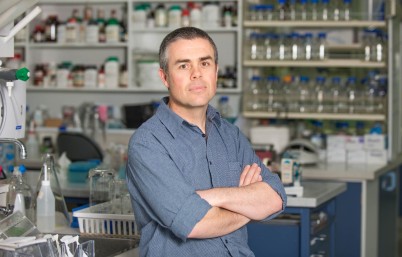The Health Research Council (HRC) has honoured an outstanding group of researchers at the Royal Society Te Apārangi’s Research Honours event in Christchurch for their transformative health interventions that have had significant national and global impact.
HRC Director of Investments and co-Chief Executive (acting) Mr Stacey Pene says the organisation is proud to have played a part in supporting the recipients of these awards over the years through different research grants.
“All the recipients honoured here tonight have produced innovative research of the highest quality that they have then gone on to translate into real-world health benefits for New Zealanders,” he says.
University of Otago Professor Logan Walker was awarded the HRC’s prestigious Liley Medal for his work integrating complex RNA splicing biology into practical clinical recommendations that are now being used by major diagnostic laboratories in New Zealand and worldwide to improve the accuracy of diagnostic tests for genetic disorders.
RNA splicing occurs during gene transcription and is essential for the proper expression of genes. When something goes wrong with this process, diseases can result.
Professor Walker was lead author on a paper, published in the American Journal of Human Genetics, that created a new framework for incorporating RNA splicing evidence into the clinic, enabling laboratories to classify genetic variants with greater confidence, improving diagnostic rates and enabling earlier clinical interventions.
“Genetics is one of those areas where we can prevent disease and sickness. Every day there are millions of genetic tests being done throughout the world, and for many of these tests, our framework is now integrated into the diagnostic services,” says Professor Walker.
“This will provide patients with a clearer answer as to whether they are at an increased risk of developing a disease or not and help doctors make more informed recommendations around treatment options and genetic counselling,” he says.
University of Otago Professor Ben Wheeler, Associate Professor Martin de Bock and team were awarded the HRC Beaven Medal1for their collective research and collaborations with industry that have directly driven the nationwide adoption of automated insulin delivery and continuous glucose monitoring for New Zealanders living with type 1 diabetes.
This landmark achievement, which was confirmed in October 2024 when Pharmac announced full funding of these technologies for all New Zealanders with type 1 diabetes, was underpinned by the team’s research and leadership in partnership with Diabetes New Zealand and the diabetes community.
The team’s clinical trials and contribution to international guidelines have helped make automated insulin delivery the gold standard globally for treating type 1 diabetes.
Associate Professor de Bock says in Canterbury and the West Coast, paediatric insulin pump use has increased from 18% to 95% in 6 years due to the development and commitment of a highly skilled workforce and improved technology access.
“We are very lucky in New Zealand with the mindset of the stakeholders, health professionals and researchers. Everyone had a common goal: how fast and how hard can we go to get this technology to all New Zealanders who need it? We ran clinical trials of the highest standard in half the time it would normally take in some international centres.”
Professor Wheeler says that in many New Zealand clinics, more than 90 percent of children with type 1 diabetes are now using automated insulin delivery pumps, vastly improving their quality of life and long-term health outcomes.
“Our team now has ongoing work trying to achieve this same goal for all New Zealanders living with type 1 diabetes regardless of age or region. We also have work underway to test these technologies in adult patients with type 2 diabetes,” he says.
The HRC also presented its new Catalyst in the Community Award to the research team from Te Rūnanga o Ōtākou Taurite Tū Limited in Otago, a rūnaka-based, kaupapa Māori research unit led by pioneering Māori physiotherapist and researcher Katrina Pōtiki Bryant.
The team have built a robust research programme blending physiotherapy, mātauranga Māori movement practices, kaumātua engagement, and public health expertise. Their Tāurite Tū programme, a uniquely Māori approach to falls prevention rooted in both western science and traditional Māori practices, has significantly reduced falls risk and injury rates for Māori aged 55-plus, with consistently high participant retention and attendance rates.
“Existing falls prevention programmes typically have low Māori engagement. Our Tāurite Tū programme reverses this trend through an engaging, culturally grounded model that incorporates ti rākau, poi, mau rākau and whakaoriori alongside physiotherapy-based exercises,” says Ms Bryant.
There are now 28 Taurite Tū programmes being delivered by iwi-based organisations in largely rural communities across New Zealand, with more coming on board with the support of partnerships with ACC and WellSouth.
“We’re delighted that we’ve been able to upskill many communities in healthcare delivery. While there are certain key things we need to teach to have the desired impact on reducing falls, it’s great to then let the organisations run it in the way that works for them and their tikanga. Kaumātua engagement and feedback is always at the heart of what we do.”
1 This is the first of two Beaven Medals to be awarded for 2025. The second joint Beaven Medal will be awarded at the Royal Society Te Apārangi’s Research Honours event in Auckland on 4 November 2025.
See the Royal Society Te Apārangi’s website for further details of all the award recipients at the Christchurch event.
